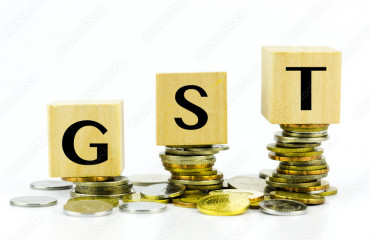
Auto sector contributes nearly 15 per cent to total GST, says SIAM president, as industry crosses ₹20 lakh crore mark
Auto sector contributes nearly 15 per cent to total GST, says SIAM president, as industry crosses ₹20 lakh crore mark
India's auto industry crossed ₹20 lakh crore in the financial year 2023-24 and now contributes nearly 15 per cent of the total goods and service tax (GST) collected in the country, reported the news agency PTI, quoting the SIAM President, on Monday.
India's auto industry crossed the ₹20 lakh crore mark in the financial year 2023-24 and now contributes nearly 15 per cent of the total goods and service tax (GST) collected in the country, reported the news agency PTI, quoting the Society of Indian Automobile Manufacturers (SIAM) President Vinod Aggarwal, on Monday, September 9.
According to the report, Aggarwal said that while speaking at the 64th annual Automotive Component Manufacturers Association of India (ACMA) session, the auto sector contributes to generating direct and indirect employment in India.
"The Indian automotive industry has crossed a landmark figure of ₹20 lakh crore (around USD 240 million) in FY24...we are contributing almost 14-15 per cent of the total GST collected in the country," said Aggarwal, according to the report. The auto sector will contribute more to the gross domestic product (GDP) of the country from its current level of around 6.8 per cent, he said.
The SIAM head also said India's standing in the global auto industry has risen. "We have become the third largest passenger vehicle market, the largest two-and three-wheeler market and third largest commercial vehicle market as the country marches towards Viksit Bharat by 2047," he said according to the agency report.
The auto industry has identified 50 critical components for local production to reduce dependence on imports at a time when the automotive industry is poised to grow faster and contribute to India's growth, said Aggarwal, according to the report.
SIAM, along with ACMA, has started enhancing indigenous manufacturing and has voluntarily set targets to increase localisation, as per the report.
"It was committed to reduce import content by 60 per cent to 20 per cent by 2025 from the base 2019-20 levels, thereby targeting the reduced reports to the tune of ₹20,000 to ₹25,000 crore in five years. We have very well achieved the first phase of import reduction of 5.8 per cent in first two years," said Aggarwal at the session, reported the agency.
"We are encouraging ACMA members to commence manufacturing them in India to enable the vehicle OEMs to source these items locally," said Aggarwal, as per the report.
As most of the items are electrical or electronics so there is a need to develop the capabilities and capacities for high-tech items in the country. Industry is also developing hydrogen and fuel cell-based technologies, said Aggarwal, cited in the report.
"Going forward, as the aspirations of the country grow we have to focus more and more aggressively on cleaner and safer vehicles," said Aggarwal, according to the report.
ACMA President Shradha Suri Marwah said the industry looks forward to the third version of the automotive mission plan.
The industry faces multiple challenges catering to the skill gap and maintaining international quality standards, according to Shradha Suri Marwah, president of ACMA, reported the agency.
"Therefore, collaboration with educational institutions and investment in skill development is essential. Besides, industry collaboration is equally vital," she said, as per the report. She added that the growing demand for electronic components and semiconductor chips underscores the need for strategic alliances.
